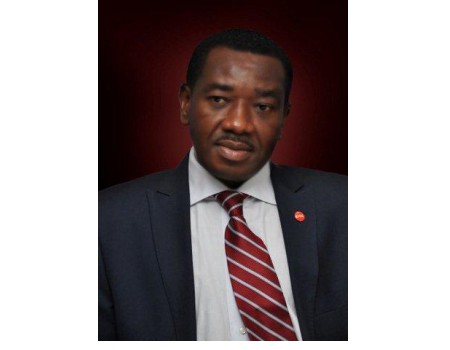
The Nigerian Employers Consultative Association (NECA) has decried high interest rates by banks and added its voice to those urging the Central Bank of Nigeria (CBN) to reduce interest rates in order to speed up the nation’s economic recovery.
Speaking at a press conference in Lagos, the President of NECA, Mr. Larry Ettah, stated that current monetary policy tools have not been effective in reducing inflation rate in Nigeria, given that the country’s inflation has mostly been driven by currency devaluation, food production and distribution.
According to him, “It is accepted practice in economic management in most jurisdictions that the correct posture in a recession is a reflationary fiscal policy and monetary easing, including reducing interest rates. Instead the CBN has maintained tight monetary policy and raised interest rates.
“We are of the view that this approach is sub-optimal and has failed. It is based on an erroneous assumption that tight monetary policy would constrain inflation and temper pressures on the naira. Instead, the actual experience confirms that Nigerian inflation is driven by cost elements usually currency devaluation and food and energy prices, while naira values are shaped by oil prices and the foreign exchange reserves rather than monetary conditions, especially as CBN has maintained administrative control of the currency value.”
He pointed out that manufacturers and other employers of labour have had to cope with a triple whammy of recession, high inflation and high interest rates caused by the wrong policy choices made by the monetary authorities.
The NECA President declared: “We call on the CBN to now move towards lowering interest rates and specifically to reduce the Monetary Policy Rate (MPR), which has been kept at 14 per cent since July 2016.”
He further stated that another dimension of the negative implications of current interest rate policy was that it has resulted in the “crowding out” of private sector access to credit by government borrowing.”
“Data from the CBN demonstrates that credit expansion to government is outgrowing by large margins credit to the private sector. For example, between February and April 2017, while credit to government grew by 3.10 per cent, 27.81 per cent and 7.54 per cent respectively private sector credit grew marginally in February by 0.10 per cent; declined by 1.89 per cent in March; and also declined by 1.48 per cent in April on a month-on-both basis.
“On a year-on-year basis, credit to government expanded by 15.43 per cent, 19.76 per cent, 37.46 per cent and 42.15 per cent in January to April 2017, while private sector credit grew only 19.76 per cent, 19.17 per cent, 17.96 per cent and 13.23 per cent in the same period,” he noted.




